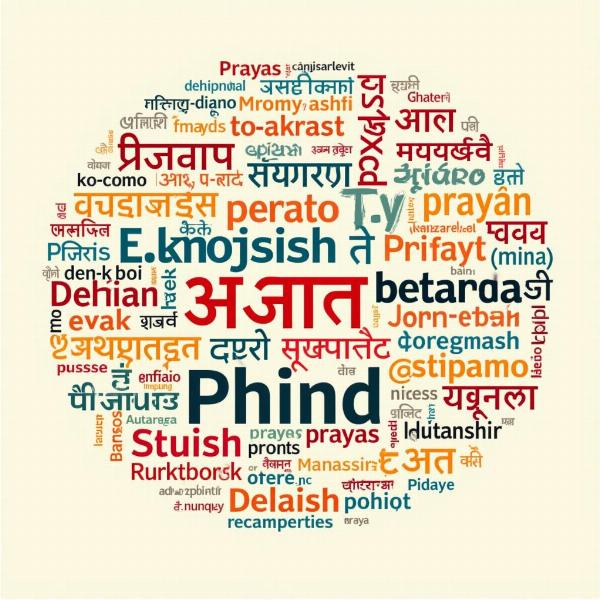Understanding the phrase “just a try” in Hindi requires more than a simple word-for-word translation. It delves into the cultural context and the subtle implications of attempting something without any guarantee of success. “Just a try” encompasses the spirit of experimentation and the acceptance of potential failure. This article will explore various ways to express this sentiment in Hindi, considering the nuances of the situation and the desired level of formality.
Different Ways to Say “Just a Try” in Hindi
Hindi offers a rich vocabulary to convey the meaning of “just a try,” each with its own subtle connotations. Let’s examine some of the most common expressions:
-
Ek koshish/prayas (एक कोशिश/प्रयास): This is the most straightforward translation, meaning “one attempt” or “one try.” It’s suitable for most situations and carries a neutral tone. For example, “I’ll just give it a try” could be translated as “Mein ek koshish karunga/karungi” (मैं एक कोशिश करूँगा/करूँगी).
-
Sirf ek baar dekhna (सिर्फ़ एक बार देखना): This translates to “just seeing once” or “just checking it out.” It implies a more casual attempt, often with less investment or expectation of success.
-
Dekhte hain (देखते हैं): This common phrase translates to “we’ll see” or “let’s see.” While not a direct translation, it often conveys the same sentiment as “just a try,” especially when referring to future attempts. It suggests a degree of uncertainty and a willingness to see what happens.
-
Aise hi (ऐसे ही): Meaning “just like that,” this phrase downplays the significance of the attempt, implying it’s done without much planning or seriousness.
-
Bas yun hi (बस यूँ ही): Similar to “aise hi,” this phrase implies a casual, almost effortless attempt, done more out of curiosity than a desire for success.
Choosing the Right Expression
The best way to translate “just a try” depends on the specific context and the speaker’s intention. Consider the following scenarios:
-
Formal situations: “Ek koshish/prayas” is generally the most appropriate choice in formal settings, such as a business meeting or a job interview.
-
Informal conversations: “Sirf ek baar dekhna,” “dekhte hain,” “aise hi,” or “bas yun hi” are better suited for casual conversations with friends and family.
-
Expressing low expectations: “Aise hi” and “bas yun hi” are ideal for conveying a lack of seriousness or commitment to the attempt.
-
Expressing hope despite uncertainty: “Dekhte hain” effectively captures the feeling of trying something without knowing the outcome.
 Hindi Expressions for Just a Try
Hindi Expressions for Just a Try
“Just a Try” in Indian Culture
The concept of “just a try” resonates deeply with Indian culture, which values resilience and learning from experience. Trying something new, even if it leads to failure, is seen as a valuable learning opportunity. This philosophy is reflected in various aspects of Indian life, from entrepreneurship to spiritual practices.
Expert Insights
Dr. Anjali Sharma, Professor of Hindi Literature at Delhi University, notes that “The concept of ‘koshish’ (attempt) is deeply ingrained in Indian philosophy. It’s not just about achieving success, but also about the journey and the lessons learned along the way.”
Mr. Rohan Verma, a successful entrepreneur based in Mumbai, adds, “In the Indian startup ecosystem, we encourage a culture of experimentation. ‘Just a try’ is often the first step towards innovation and groundbreaking discoveries.”
Conclusion: Embracing the Spirit of “Just a Try”
Understanding the various ways to express “just a try” in Hindi allows for more nuanced and culturally appropriate communication. Whether you’re exploring a new business venture, learning a new skill, or simply trying a new recipe, embracing the spirit of “just a try” can lead to unexpected discoveries and personal growth. Remember, the essence of “just a try” lies not in the outcome but in the courage to take that first step.
FAQ:
- What is the most common way to say “just a try” in Hindi? Ek koshish/prayas is the most common and versatile translation.
- How do I say “just a try” in a formal setting? Use ek koshish/prayas.
- What are some informal ways to express “just a try”? Sirf ek baar dekhna, dekhte hain, aise hi, and bas yun hi are suitable for informal contexts.
- Does Indian culture embrace the concept of “just a try”? Yes, Indian culture values experimentation and learning from experience.
- What is the difference between koshish and prayas? Both words mean “attempt” or “try,” but prayas sometimes implies a more concerted effort.
Meaning-Hindi.in is your one-stop solution for all your Hindi translation needs. We offer a wide range of translation services, including business and commercial document translation, certified and legal document translation, technical and user manual translation, website and localization translation, educational and academic document translation, express translation, and specialized translation. Our team of expert Hindi linguists ensures accurate and culturally sensitive translations. Contact us today at [email protected] or call us at +91 11-4502-7584. Meaning-Hindi.in is here to help bridge the language gap and connect you with the world.